Hooper Archives honor legacy of longtime history professor
Kim Chaudoin |
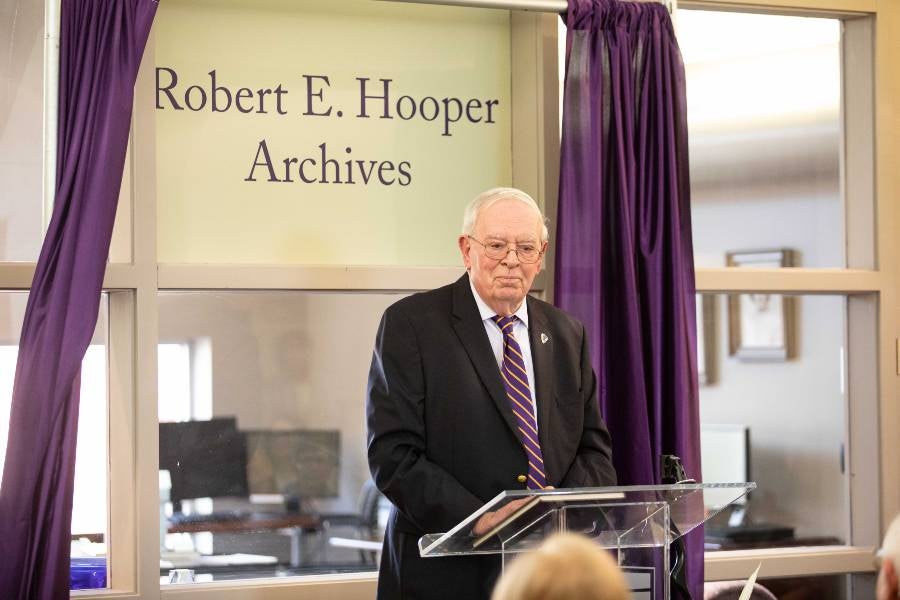
Bob Hooper speaking at the dedication of the Robert E. Hooper Archives on March 28.
“The road into the future is difficult if the traveler has no knowledge of the past. Events of the past should not be revered as God, but knowledge of the past aids in the understanding of the present and gives direction to the future.”
These words, penned by Robert E. Hooper in his first book, A Call to Remember: Chapters in Nashville Restoration History published in 1977, express his philosophy on the importance of history. He devoted his career to sharing this passion as a professor of history at Lipscomb University for nearly 60 years. Through a generous estate gift, he has ensured that Lipscomb’s history will be preserved for future generations.
On Tuesday, March 28, the Lipscomb community gathered in Beaman Library to recognize his gift and lengthy service to Lipscomb by naming the university’s archives in his honor — the Robert E. Hooper Archives.
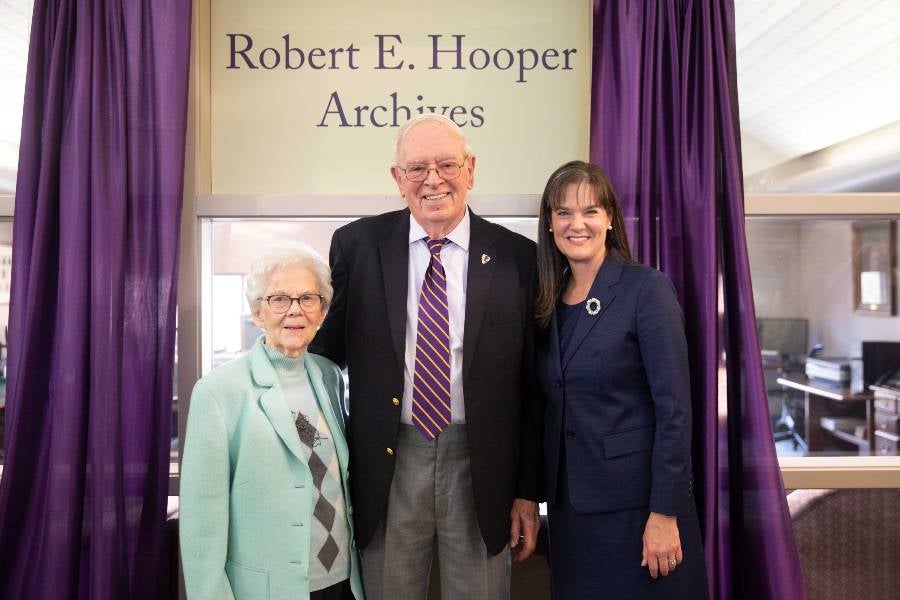
Bonnie and Robert Hooper with Lipscomb President Candice McQueen.
“Dr. Hooper’s love of history and fervent belief in its importance, led him to make a generous estate gift to the Beaman Library archives,” Lipscomb President Candice McQueen said during the dedication ceremony. “This gift ensures that Lipscomb’s history will be preserved for future generations of students … so that years and decades from now, their knowledge of the past will aid them — and future leaders of this institution — in better understanding their present circumstances so they may draw from it direction for the future of this great university.”
“Few understand better than Dr. Hooper the importance of supporting and preserving Lipscomb’s past — our story — and I can think of no more appropriate lasting legacy than through the Robert E. Hooper Archives,” she continued. This is a place where we welcome students, faculty, staff and the public to explore the rich heritage that we share. Dr. Hooper, thank you for the way you have served this university and impacted the lives of so many students. Thank you for making this possible.”
As a leading historian of the Restoration Movement and the churches of Christ as well as Lipscomb University, Hooper has entrusted his books and papers to the library’s archives.
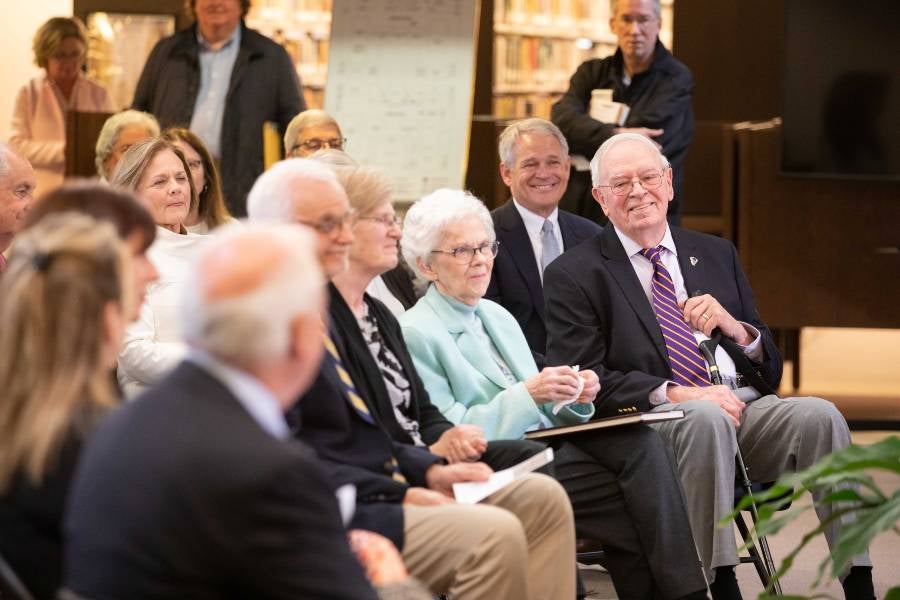
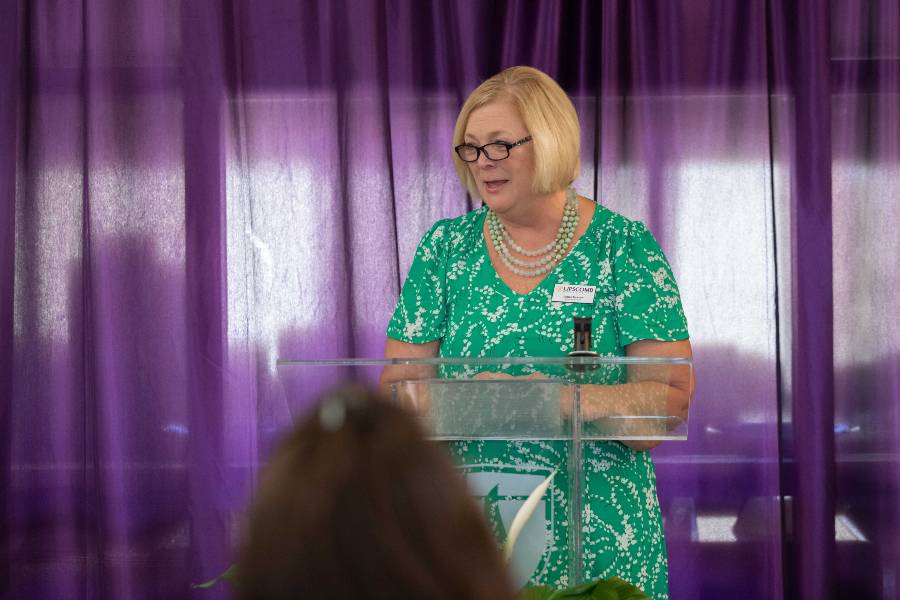
Julie Harston, director of library services, shares remarks at the ceremony.
Julie Harston, director of library services, said it is fitting to have Hooper’s name on the archives as he has been a frequent visitor through the years as a faculty member and while conducting research for a book project.
“Dr. Hooper always had a smile on his face when he was in the library because he was where he is happiest,” said Harston. “Everytime he was in the library he took time to stop by the reference desk and tell us what he was researching and what resources he was using. There was never any doubt that he was our biggest fan and we were his. We share a love for books.”
“Today we are happy to salute a Lipscomb legend,” she continued, “and we thank you for lending your name to our archives to preserve our past, present and future.”
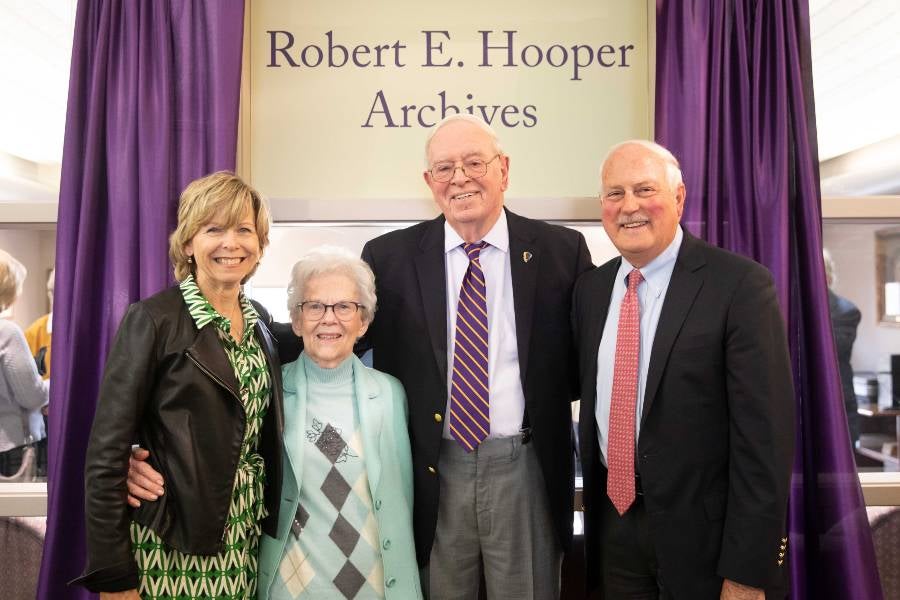
Sandy Bledsoe, Bonnie and Bob Hooper, and Craig Bledsoe.
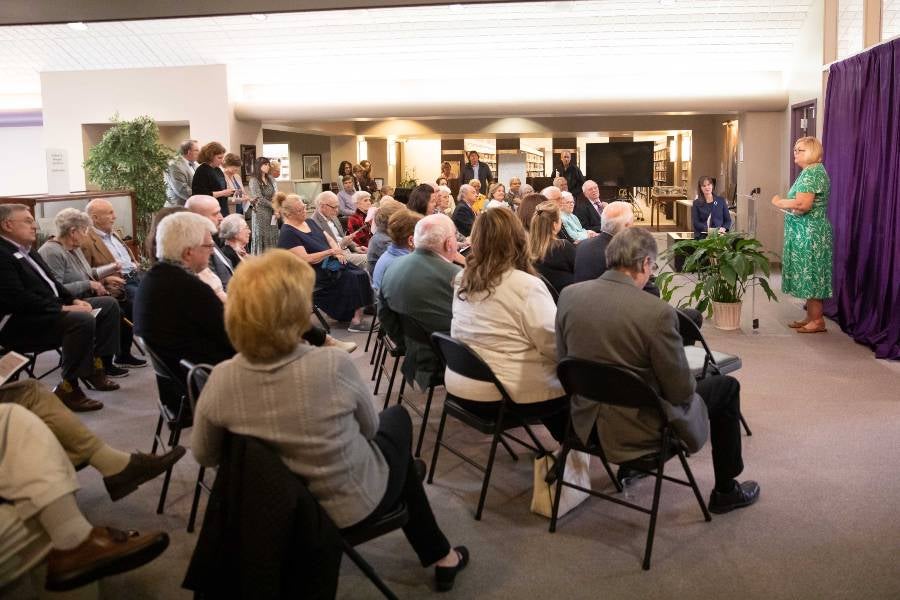
Hooper graduated with a Bachelor of Arts degree from Lipscomb University in 1954. He taught at Mars Hill Bible School in Florence, Alabama, and at Columbia Christian College in Portland, Oregon, before joining the Lipscomb faculty in 1960 as instructor in history. Hooper served as chair of the department from 1962-1992 and although retiring from fulltime teaching in 1998 he continued to teach part time until 2017.
“Dr. Hooper has been close to me for a long, long time and has made significant contributions to this university and the wider academic community – and to many of us who came here as young scholars,” said W. Craig Bledsoe, provost emeritus who served as Lipscomb provost from 1997-2022. “He had a tremendous impact on my life and was patient and kind with me as I began my career as a faculty member years ago. He has been beloved by faculty and inspired countless students with his passion for history and his commitment to excellence in teaching. He was also a prolific scholar that made a significant contribution to the world of history and to preserve the rich legacy of Lipscomb University, the Restoration Movement and church history. The Robert E. Hooper is a great way for his legacy to live on.”
Having the Lipscomb archives named after him is something Hooper said he never expected.
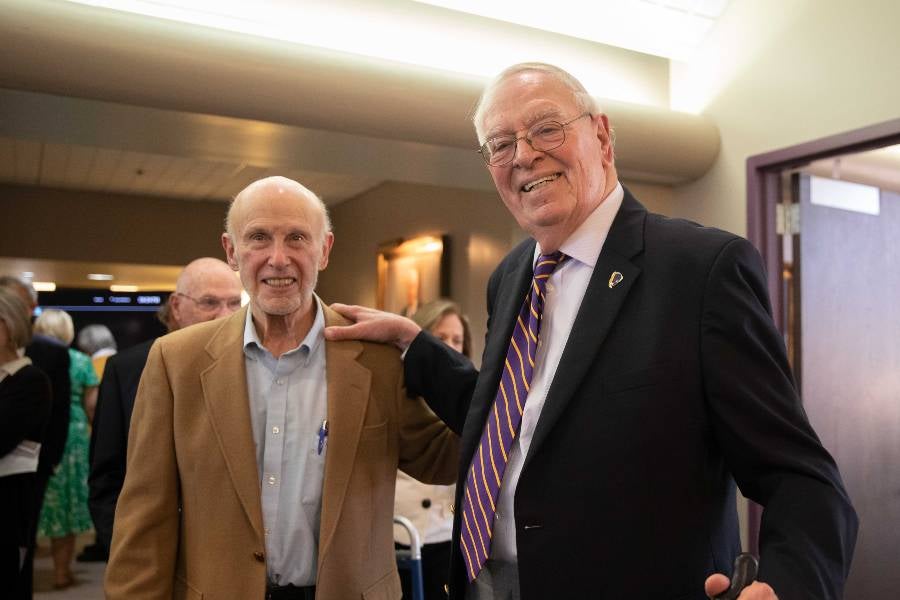
Perry Cotham and Bob Hooper.
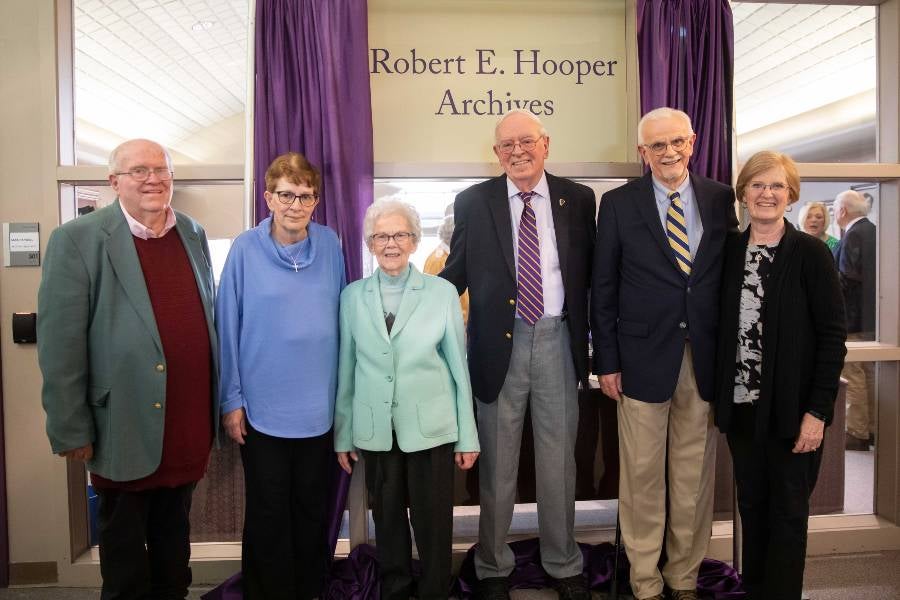
Bob Hooper was joined by family from across the country for the ceremony.
“I never thought this would be possible,” he said. “I just don’t know what to say. I thank all of you for being here. It’s a blessing to have so many of my family members here today to celebrate this day with me. Lipscomb means so much to me and has for almost my entire life. This is quite an honor and I am grateful.”
As a young doctoral student Hooper said he spent much time in the Crisman Library, which preceded the Beaman Library, conducting research for his dissertation, “The Political and Educational Ideas of David Lipscomb.” In addition to a Call to Remember, Hooper also wrote the seminal biography of founder David Lipscomb, Crying in the Wilderness, which was originally released in 1979 and a second edition released in 2011. He is also author of Willard Collins: The People Person (1986), A Century of Memories: Centennial Celebration, David Lipscomb University, 1891-1991 (1992), A Distinct People: A History of Churches of Christ in the Twentieth Century (1993) and If Your Enemy Hungers, Feed Him: Church of Christ Missionaries in Japan, 1892-1970. In addition to research, writing and teaching, Hooper has also preached at eight Church of Christ congregations in Alabama, Oregon and Tennessee.
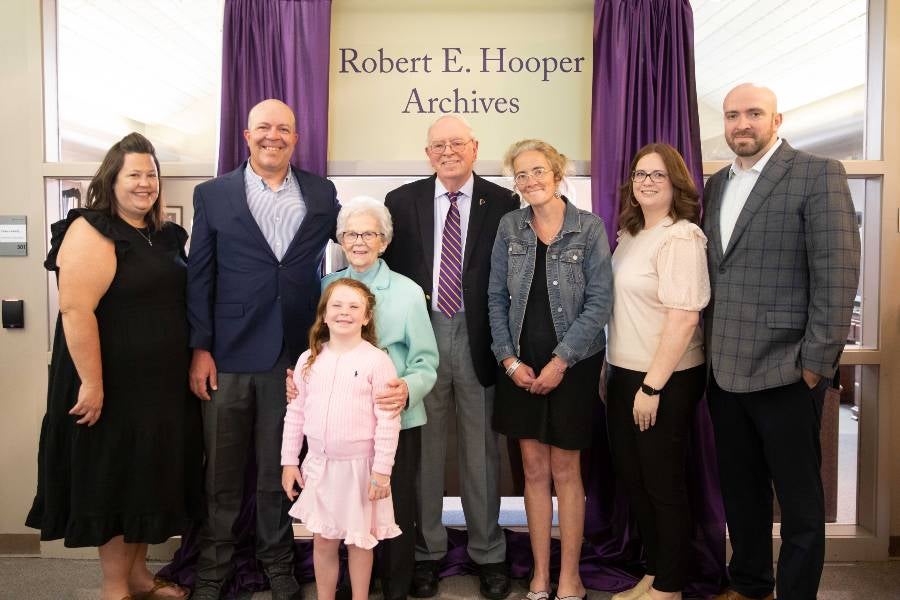
Bob Hooper was joined by family from across the country for the ceremony.
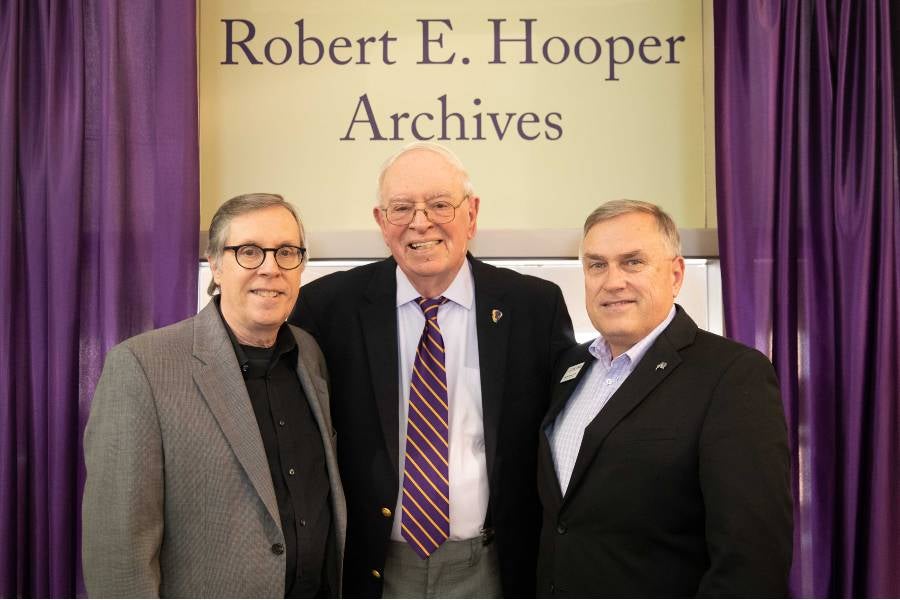
David England, Bob Hooper and Paul Stovall.
Hooper and his late wife, Virginia, had three children, Andy, Elaine and Amy, who are all Lipscomb graduates. He and his wife, Bonnie, reside in Arkansas.
The Robert E. Hooper Archives is located on the second floor of the university’s Beaman Library. It houses a number of special collections and Lipscomb artifacts, photos and other memorabilia as well as papers, research and other items important to preserving the university’s story. The archives are open to students, faculty, staff and the public Monday through Thursday from 8 a.m. to 4 p.m.
“All are invited to visit the archives and explore the rich heritage that we share,” said Harston.
Learn more about the Robert E. Hooper Archives at Beaman Library.
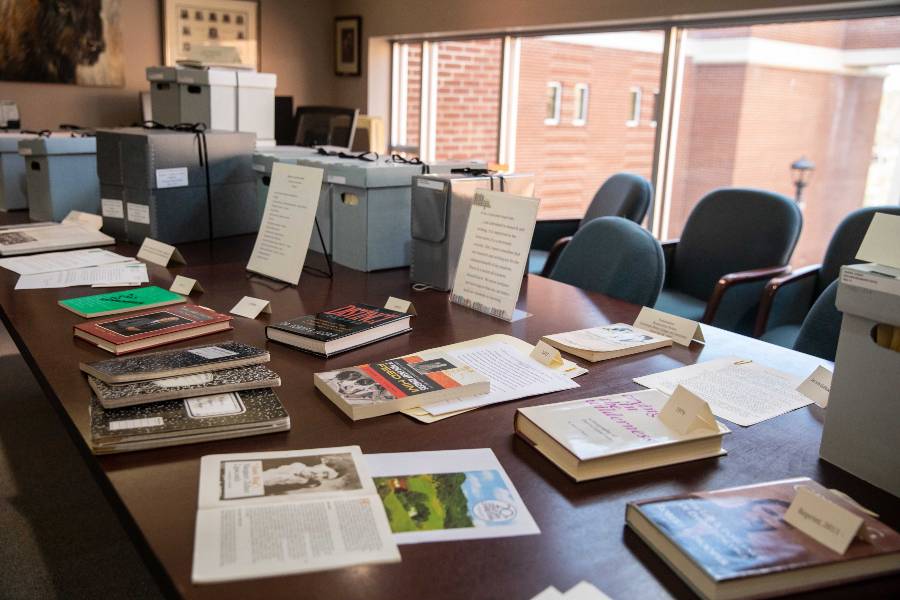
Bob Hooper's papers and books are now part of the Robert H. Hooper Archives.
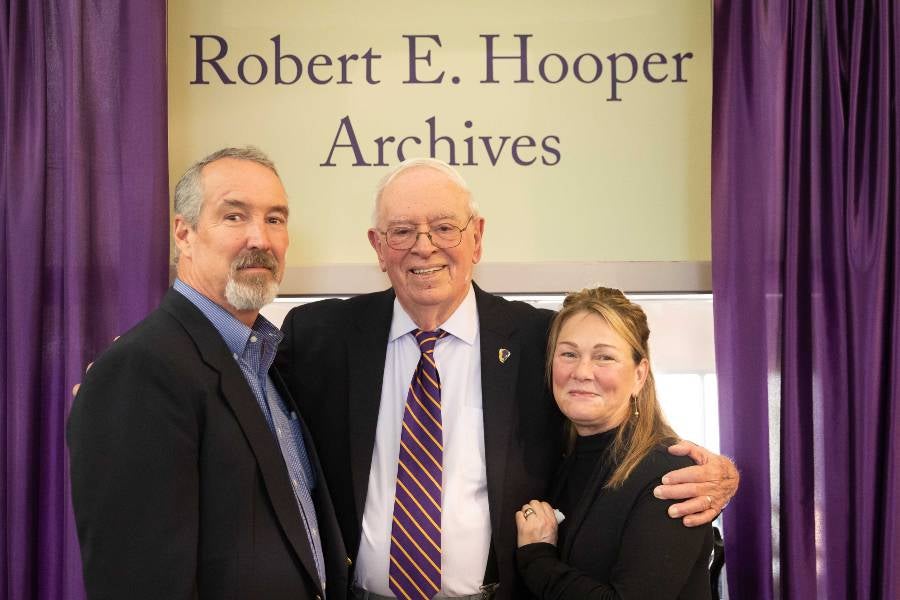
Bob Hooper with Jay and Stephanie Gore.
— Photos by Kristi Jones